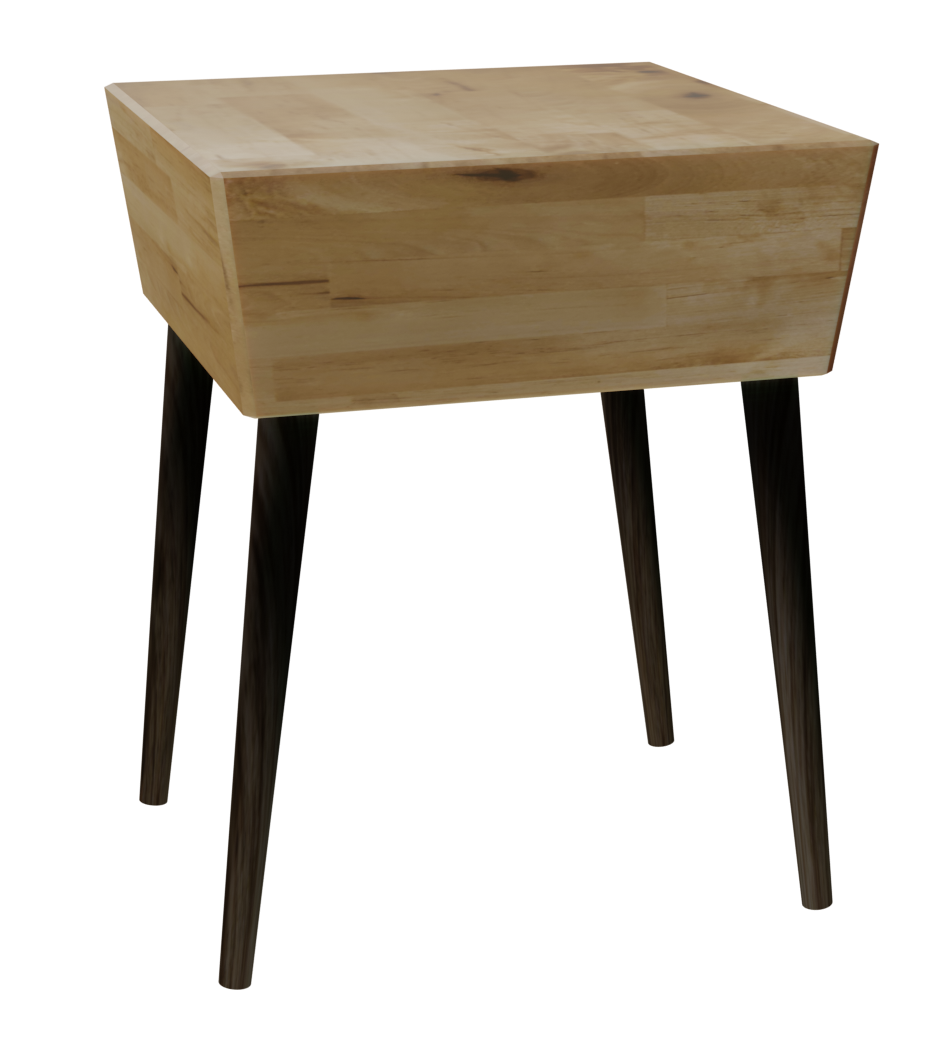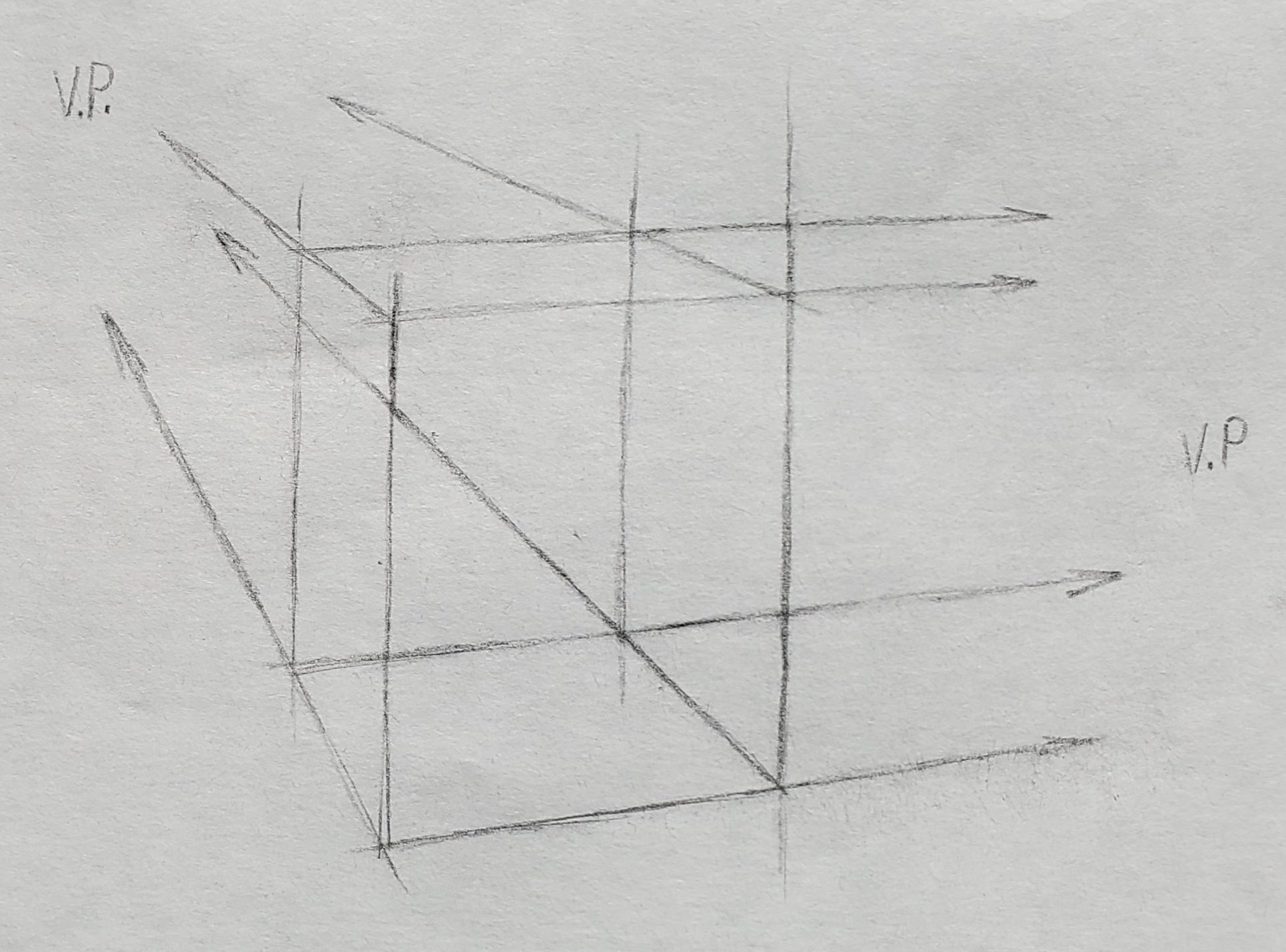Exercise 5.2 Line Drawing of a Stool
You will draw a basic line drawing of the image of a stool. The drawing process should use a slow and methodical approach with an emphasis on accuracy, it is not a quick sketch. This object may seem simple, however, the angle of lines and their lengths can be tricky.
Materials needed:
- Pencils – both 4H and HB
- One quarter of your drawing pad
- Viewfinder and erasable marker
Time to complete: 30 minutes
Instructions:
You will draw the stool below and making sure the measurements are correct. The drawing will only need to be a line drawing. No shading is necessary.
- Start with a hard 4H pencil.
- The object should fill your drawing area as much as possible.
- Keep all setup lines and tick marks. Don’t erase any extra lines that were used. Try your best not to erase. The setup lines should be lightly done with your hard pencil. Do not push hard.
- After the lightly drawn object looks correct, go in and darken the main features with your HB pencil to darken the lines. Don’t trace around the entire object in one pass. Draw each section at a time and try not to push too hard on the pencil.
- Take a photo of the drawing with the rest of the exercises for chapter five once you complete all of them. Exercises 5.1, 5.2, 5.3, and 5.4 should all be in the same photo file.
The image to draw:

Some helpful notes on drawing the stool:
- Utilize all measuring tools at your disposal.
- The subject has a lot of angled lines at various lengths and accuracy is crucial.
 Sometimes it helps to simplify an object like this into one large basic cube, such as shown in the image to the left. This helps to check the main angles and will help you establish the shape of the top and the shape the legs make when touching the ground. Also, note that many of the angled lines are not parallel with the opposite side of the cube. These lines will end up converging at two vanishing points (V.P.) off in the distance. We will cover this more in the chapter on perspective.
Sometimes it helps to simplify an object like this into one large basic cube, such as shown in the image to the left. This helps to check the main angles and will help you establish the shape of the top and the shape the legs make when touching the ground. Also, note that many of the angled lines are not parallel with the opposite side of the cube. These lines will end up converging at two vanishing points (V.P.) off in the distance. We will cover this more in the chapter on perspective.- You can use your viewfinder to find the box shape or a pencil to find its angles and lengths.
- Don’t forget about the shape of the negative space between the legs.
- If in your drawing it looks like you will slide off of the seat if you sit down on the stool, your angles are off at the top, bottom, or both. Check the angles, then adjust them and try again.

